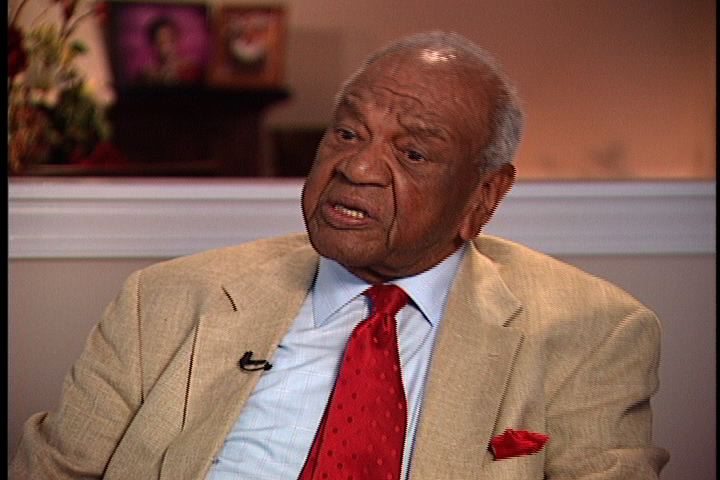In This Episode << SLIDE LEFT TO SEE ADDITIONAL SEGMENTS
HOW SHALL THEY PREACH? by Gardner C. Taylor
Read an excerpt from HOW SHALL THEY PREACH? by Gardner C. Taylor, reprinted in THE COMPANY OF PREACHERS, an anthology edited by Richard Lischer (Eerdmans, 2002):
Every preacher ought never to forget in his preaching that one preaches to people who are initially and finally solitary animals with their own fears and courage, grief and guilt, joy and sorrow, anxiety and anger, and with that deep age-old hunger which the bread of this world cannot satisfy and a thirst which the waters of this life cannot quench. Jesus asserted this of which I now speak when he said, “Man shall not live by bread alone.” This wistful yearning for spiritual reality and experience is expressed in a song my elders sang in the long ago, “I woke up this morning with my mind stayed on Jesus.”
This strange, poignant wistfulness in each person which the preacher must sense and find and channel is to be explained partly, but not entirely, by the solitariness which occurs at both ends of our moral journey. We arrive here one by one. At the other end, as someone has put it, the way by which we leave, death, is a narrow passage and, no matter our loves, we cannot go out arm in arm. We must edge our way out one by one and sometimes sidewise, so to speak, with the jagged edges of the rocks of the narrow passage scratching and paining us. My own people sang of this:
You got to stand your test in judgment
You got to stand it for yourself
There’s nobody else can stand it for you
You got to stand it for yourself.
Men and women are up against these things for themselves and, what may be even more poignant and touching, for those whom God has given them to love.
Above all, there is in each of us a dis-ease, a sense of unfulfillment of some high destiny unmet, of some lofty vow broken and shattered. We are sinners! We long for some word of forgiveness which will make us whole. We sense we have a homeland, but we are exiles. We perceive that we are of royal lineage, but our lives are being spent cheaply and shabbily and our purposes and ends are too narrow and parochial. We would be restored to our true estate. The old cry is in our literature, on our television screens, in the shame and shambles of public corruption as people seek security in money or influence. It is in the flight of our young into themselves and out toward some nirvana of drug-induced ecstasy. Paul has stated the case for so many of us, “for the good that I would I do not; but the evil which I would not, that I do….O wretched man that I am! Who shall deliver me from the body of this death?”
With what awe and bated breath and how on tiptoe ought a preacher move with his or her gospel among these central sanctities! How shall a preacher know how to deal with these things? One of the great, sustaining strengths of the preacher is to be found in the fact that he or she is part of the human condition, seeing and experiencing ecstatic joys and knowing the cold chill of the floods of sorrow. Here again is the redeeming aspect of the scandal and the risk, if I may put it that way, which God took in putting the gospel of everlasting life upon sinful and mortal lips….
We are surrogates of a gospel which has explored the secret places of the human heart, which has sounded the depths of the human predicament. The gospel of the Son of God, the word that the creation is built on the lines of a cruciform and which was once, once and for all, historicized at Calvary, is the answer to the questions that haunt and plague the human spirit. It is a gospel relevant to human experience; rather, all human experience is relevant to that sovereign gospel. It says to those ages which deify the individual, the personal, that we are all of one blood, members of the family of man, all bound in the bundle of life. This gospel says to those ages which obscure the individual in some tribalism or other that the hairs of our heads are all numbered and that the Good Shepherd “calleth his own sheep by name.”







